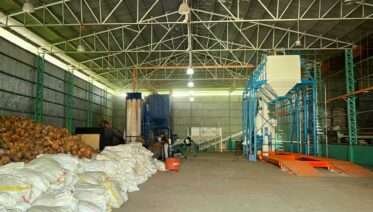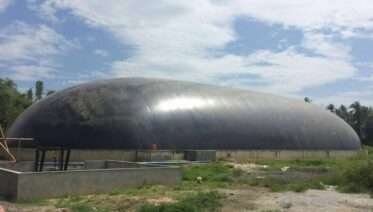The Philippines is known for its beautiful beaches, tropical climate, and friendly people. However, another aspect that has been gaining attention in recent years is the country’s potential for biomass energy production. Biomass refers to organic materials derived from plants and animals that can be used as a source of energy. These materials, such as agricultural waste, animal manure, and wood chips, can be converted into biofuels that can power industries and households. In this blog, we will explore the potential of biomass in the Philippines and how it can contribute to the country’s energy security and sustainable development.
The Philippines is a country heavily dependent on imported fossil fuels such as coal, oil, and natural gas for its energy needs. This reliance on imported energy sources makes the country vulnerable to price fluctuations and supply shortages in the global market. As such, the government has been looking into alternative energy sources to reduce its dependence on fossil fuels and ensure a stable and secure energy supply.
One of these alternative sources is biomass. The Philippines has a vast potential for biomass production due to its diverse agricultural sector. According to a report by the United Nations Industrial Development Organization (UNIDO), the country produces about 35 million tons of agricultural waste annually, which can be used as feedstock for biomass energy production. This waste includes rice husks, coconut shells, sugarcane bagasse, and corn cobs, among others.
Apart from agricultural waste, the country also has an abundant supply of animal manure from its livestock industry. This organic material can be used for biogas production, which can be used for cooking and electricity generation. With an estimated 20 million heads of cattle and over 100 million heads of swine in the Philippines, there is a significant potential for biogas production in the country.
The use of biomass as a source of energy has numerous benefits for the Philippines. Firstly, it can help reduce the country’s carbon footprint and contribute to mitigating the effects of climate change. Biomass energy production emits significantly less greenhouse gases compared to fossil fuels, making it a more environmentally friendly option. Additionally, the use of biomass can help reduce waste and prevent air and water pollution caused by the improper disposal of agricultural waste.
Furthermore, the development of biomass energy production in the Philippines can also lead to economic benefits. With the country’s abundant supply of agricultural waste and animal manure, there is a potential for job creation in rural areas through biomass power plants. These plants can also provide additional income to farmers and waste collectors who can sell their organic materials to biomass energy producers.
One successful example of biomass energy production in the Philippines is the San Carlos BioPower plant in Negros Occidental. This 19-megawatt power plant utilizes sugarcane bagasse as its primary fuel source, providing electricity to over 30,000 households in the province. The project has also brought economic benefits to the local community, with farmers earning additional income by supplying sugarcane bagasse to the plant.
Another promising initiative is the Biomass Renewable Energy Plan (BREP) of the Department of Energy (DOE), which aims to develop a sustainable biomass industry in the country. The BREP includes plans for building biomass power plants, promoting biomass utilization in industries such as agriculture, and conducting research and development for new technologies in biomass energy production.
While there are numerous benefits to developing biomass energy in the Philippines, there are also challenges that need to be addressed. One major hurdle is the high initial cost of setting up biomass power plants. Compared to traditional power plants, biomass facilities require specialized equipment and technology, making them more expensive to build.
Moreover, there is a need for better infrastructure and logistics for the collection and transportation of biomass feedstock to power plants. This can be a challenge, especially in rural areas with limited road networks and inadequate storage facilities for agricultural waste.
The government, along with private sector investments, needs to address these challenges for the full potential of biomass energy production to be realized in the Philippines. This can be done through providing incentives and subsidies for biomass projects, improving infrastructure, and promoting research and development for more efficient and cost-effective biomass technologies.
In conclusion, the Philippines has a vast potential for biomass energy production, given its abundant supply of agricultural waste and animal manure. The development of this sector can contribute to the country’s energy security, reduce its carbon footprint, and provide economic benefits to rural communities. However, there are still challenges that need to be addressed for biomass to become a significant player in the country’s energy mix. With the right support and investment, biomass can pave the way towards a more sustainable and greener future for the Philippines.










Comments are closed